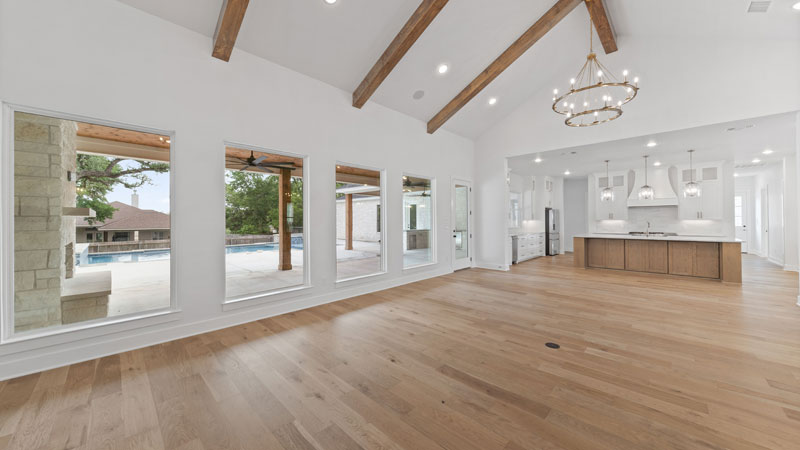The flooring you choose for your home is one of the most significant decisions you’ll make as a homeowner. Both hardwood and tile floors offer unique advantages, and each has its own set of characteristics that can drastically impact the look, feel, and functionality of your living space. In this blog, we’ll explore the key differences between hardwood floors and tile floors, helping you make an informed decision that suits your lifestyle and preferences.
1. Aesthetics and Style: Hardwood floors are known for their timeless beauty and warm, natural appeal. They add a sense of sophistication and elegance to any room, making them a popular choice among homeowners seeking a classic and inviting atmosphere. With a wide range of wood species and stains available, you can easily find the perfect match to complement your interior decor.
On the other hand, tile floors offer endless design possibilities. They come in various shapes, sizes, colors, and patterns, allowing you to create striking visual statements. From contemporary to traditional, rustic to modern, tiles offer incredible versatility, making them an excellent choice for those who wish to personalize their space with unique aesthetics.
2. Durability and Longevity: When it comes to durability, Tile floors are exceptionally robust and long-lasting. Especially when made from materials like porcelain or ceramic. They are resistant to scratches, water, and stains, making them ideal for high-moisture areas like kitchens and bathrooms. If a tile does get damaged, individual pieces can be replaced without having to redo the entire floor. With proper care, tile floors can last a lifetime.
High-quality hardwood can withstand heavy foot traffic and last for decades if properly maintained. Scratches and dents may occur over time, but they often add character, giving the floor a lived-in charm. Additionally, some hardwood floors can also be repaired if damaged.
3. Maintenance: Maintenance is a crucial factor for homeowners with busy lifestyles. Hardwood floors require regular sweeping and occasional cleaning with approved products to keep them clean. Spills should be wiped up promptly to prevent water damage.
Tile floors are relatively low maintenance, as they can handle more aggressive cleaning methods. Regular sweeping or vacuuming, coupled with mopping using mild detergents, is usually sufficient. Grout lines may require occasional scrubbing to prevent discoloration.
4. Comfort and Insulation: Hardwood floors provide a comfortable surface to walk on, and they tend to feel warmer underfoot than tile. They also offer natural insulation, helping to maintain a more consistent indoor temperature and potentially reducing energy costs.
Tile floors can be cold and hard, making them less comfortable to stand on for long periods, especially during colder months.
5. Installation and Cost: Both hardwood and tile floors can vary widely based on the type of material grade, and complexity of the installation. While hardwood floors tend to be on the more expensive side, tile has some products available in a more budget friendly range. Overall, they both have different grades and price points.
Conclusion: Choosing between hardwood floors and tile floors ultimately comes down to your personal preferences, lifestyle, and budget. If you desire timeless elegance, warmth, and a floor that ages gracefully, hardwood might be the way to go. On the other hand, if you seek versatility, durability, and a wide array of design options, tile floors could be the perfect fit.
In many cases, homeowners opt for a combination of different floor types. For example, hardwood floors in the living areas and carpet in bedrooms provide a cozy ambiance, while tile floors in the kitchen and bathroom offer practicality and ease of maintenance.
Regardless of your choice, investing in high-quality materials and professional installation will ensure your new floors not only look stunning but also stand the test of time, enhancing the beauty and value of your home for years to come.

